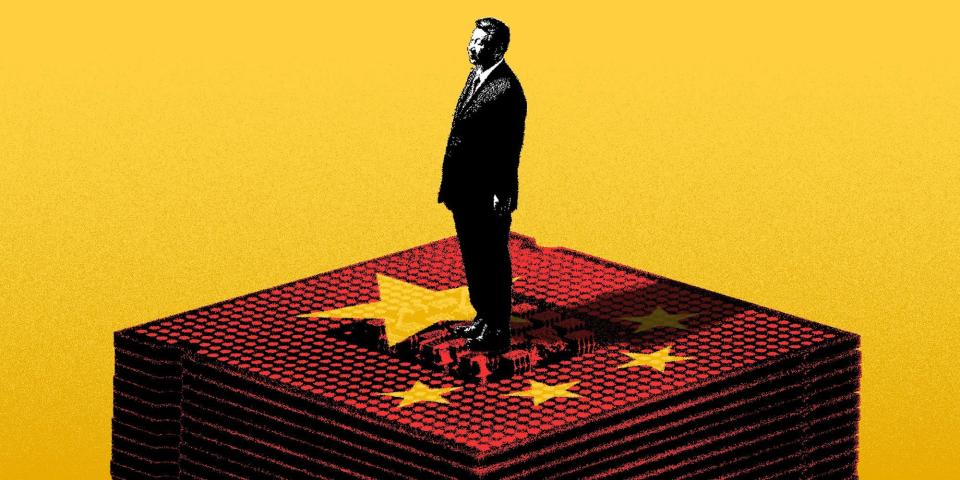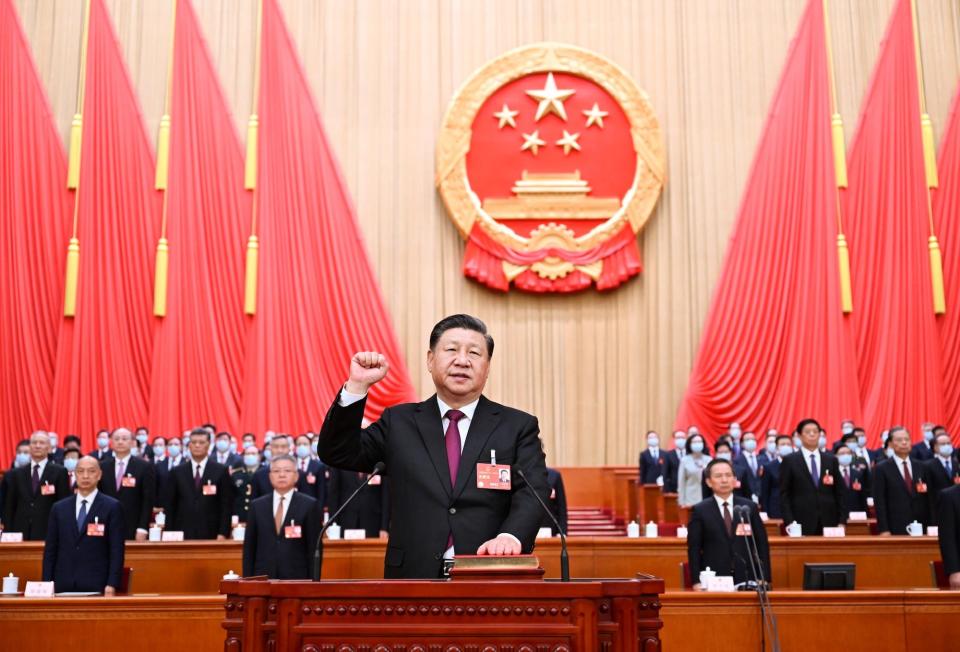Inside China's plan for AI: shape reality and enforce its power
This post originally appeared in the Insider Today newsletter.
You can sign up for Business Insider's daily newsletter here.
Welcome back! Lifestyle creep can get the best of us, but it can lead to some serious financial stress. A Harvard professor shares tips for nipping it in the bud.
In today's big story, we're looking at China's strict approach to overseeing its AI development and the threat it poses to the world.
What's on deck:
Markets: How one of the top hedge funds in the world runs its internship program.
Tech: Layoffs are back at Google.
Business: American Express is Gen Z's newest status symbol.
But first, AI, but make it in our vision.
If this was forwarded to you, sign up here.
The big story
ChatCCP

We've heard about the dangers of AI running wild, but what kind of risks come from the tech being highly regulated and controlled?
For the Chinese Communist Party, that's the plan. The country's history of censorship and surveillance is extending to its approach to AI, writes Business Insider's Linette Lopez.
The CCP's plan for AI is about shaping reality and enforcing its power, according to internal documents. To that end, the government has final sign-off on large language models and the data they were trained on.
In short, it's less "move fast and break things" and more "proceed in a government-approved fashion and avoid upsetting the status quo."
China's push to exert control over AI comes at a critical juncture for the country.
As Linette has previously reported, China's bright economic future has dimmed considerably. And its recovery plan — China shock 2.0 — won't come easily or be welcomed by the rest of the world.
So, as AI chatbots become the new method of receiving information, it's no wonder the CCP is making sure AI is getting accurate its messages across.

However, this isn't a call for a libertarian approach to generative AI.
As we've seen recently, a lack of guardrails comes with its own set of problems. The end results range from funny (don't make your pizza with glue) to infuriating (AI misusing creative work).
And in the face of these mishaps, the response from the people in charge rarely exudes the confidence of someone completely in control. Instead, it feels like we're all going along for an AI-led drive and hoping for the best.
So putting in some types of rules around the tech — albeit not to the degree the CCP has — seems like a good idea.
But that poses another issue. How can we expect lawmakers, who often struggle with the basics of tech, to grasp something people on the cutting edge can barely wrap their heads around?
In the meantime, China could extend the AI tools of control and surveillance it creates to other regimes with similar ideologies.
It's a distressing outcome.
"The digital curtain AI can build in our imaginations will be much more impenetrable than iron, making it impossible for societies to cooperate in a shared future," Linette writes.
3 things in markets

Here come the interns. Ken Griffin's Citadel and Citadel Securities welcome more than 300 interns for their 11-week program that starts today. BI got a look at how the firms recruit and run a program that draws over 85,000 applicants and has a 0.5% acceptance rate.
What to do ahead of May's jobs report. Permabull Tom Lee said it's a great time to buy stocks — shocking — with a new jobs report set to drop on Friday. Stocks' slight decline last week and April Core PCE data showing cooling inflation means investors can get in ahead of the next rally.
GameStop surges again. Shares in the retailer almost doubled ahead of Monday's opening bell after trader Keith Gill, also known as "Roaring Kitty," revealed a $116 million position.
3 things in tech

More layoffs hit Google, this time in its Cloud unit. The company announced it was cutting jobs across several Cloud teams, according to an internal document reviewed by BI. The layoffs appear to be more sweeping than Google's more surgical cuts to other teams in recent months.
This anti-Instagram photo-sharing app is grabbing the tech world's attention. Launched in 2023 by two former Instagram staffers, Retro is a social media app that isn't chasing AI hype. Instead, it's focused on building a cozy, small-scale user experience that's wooing many Silicon Valley figures.
It's been a tough start for Amazon's Shopify killer. Launched over a year ago, Buy with Prime has seen mixed results so far, according to sellers who spoke with BI. Internal Amazon emails discussed "dissatisfaction," with sales off target "by a wide margin."
3 things in business

Meet Gen Z's newest status symbol: an AmEx card. American Express credit cards aren't just for your rich, boomer dad anymore. AmEx's new benefits are targeting Gen Z and millennial customers by offering Uber ride rewards and special access to events like Coachella. So far, it's working.
Why Americans don't exercise. Many of our collective crises — depression, loneliness, and anxiety — are made worse by our tendency toward a sedentary, shut-in lifestyle. Research shows that exercise can help. So why have we given up on trying to be active?
Boomers and Gen Z are feeling happy-lonely. New studies show that happiness and loneliness both peak early and later in life, with a decline in middle age. We spoke with adults who feel happy and lonely at the same time — and researchers on how that works.
In other news
Loyalty at work no longer pays — and it's employers who are to blame.
Here's everything you need to know about Big Tech's AI models and tools but were too afraid to ask.
A single customer made up 19% of Nvidia's revenue last year. UBS thinks it's Microsoft.
These parents wouldn't let their teens have phones. Here's what happened.
What's happening today
IATA's annual report on the air transport industry will be released today.
The Insider Today team: Dan DeFrancesco, deputy editor and anchor, in New York. Jordan Parker Erb, editor, in New York. Hallam Bullock, editor, in London. George Glover, reporter, in London. Grace Lett, associate editor, in Chicago. Annie Smith, associate producer, in London.
Read the original article on Business Insider

